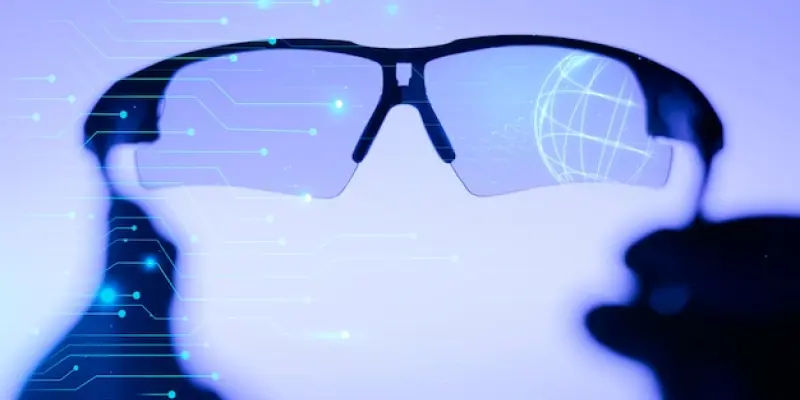In the dynamic world of technology, the race to integrate artificial intelligence into consumer devices is relentless. Apple is reportedly preparing to introduce its first pair of AI smart glasses in 2026, setting the stage for a potential showdown with competitors like the Ray-Ban Meta AI glasses. These upcoming glasses are anticipated to come equipped with advanced features, including cameras, microphones, and a speaker, enhancing the user’s interaction with Apple’s intelligent assistant, Siri. This development underscores Apple’s commitment to pioneering AI-focused wearable technology. Despite past challenges in developing similar devices, such as an Apple Watch model that would have included a camera, Apple’s smart glasses project remains on track for a promising rollout. Extensive prototyping is currently underway with global suppliers, signaling a robust commitment to this ambitious endeavor.
The Innovative Features of Apple’s Smart Glasses
Apple’s forthcoming smart glasses are expected to go beyond just being an accessory, offering a platform that leverages AI to deliver a wide range of functions. The integration of cameras will enable live translation and navigation, providing users real-time, valuable interaction with their surroundings. Moreover, the inclusion of microphones and a speaker allows for sophisticated voice interaction, where users can make phone calls and manage tasks simply by speaking to Siri. This hands-free interaction mechanism will likely enhance convenience, driving consumer interest toward the new product. The anticipated voice-interactive capabilities will align with features seen in Meta’s existing offerings, illustrating a market shift toward more intuitive, AI-driven optical devices. By venturing into this space, Apple is not only expanding its product line but also responding to a growing demand for integrated, smart tools designed for everyday use.
Competitive Dynamics in the Smart Glasses Market
As Apple gears up for the launch of its smart glasses, its strategic maneuvers highlight a bid to establish a unique position in the competitive smart glasses market. Meanwhile, Meta is also preparing to release its Hypernova glasses, featuring hand gesture controls and a built-in display by the end of the year. These developments underscore not only the increasing rivalry among tech giants but also the expanding potential of AI-powered augmented reality devices. Significantly for Apple, this release aligns with the 20th anniversary of the iPhone, a landmark likely marked by the unveiling of multiple groundbreaking products. Although some of Apple’s prior goals—such as facial recognition for smart glasses or embedding cameras within AirPods—are temporarily shelved, this new glass initiative aligns closely with Apple’s broader vision of integrating AI and augmented reality within its ecosystem. As both Apple and Meta carefully examine these progressing technologies, consumers and the industry eagerly anticipate how these innovations will influence behaviors and set new benchmarks.

